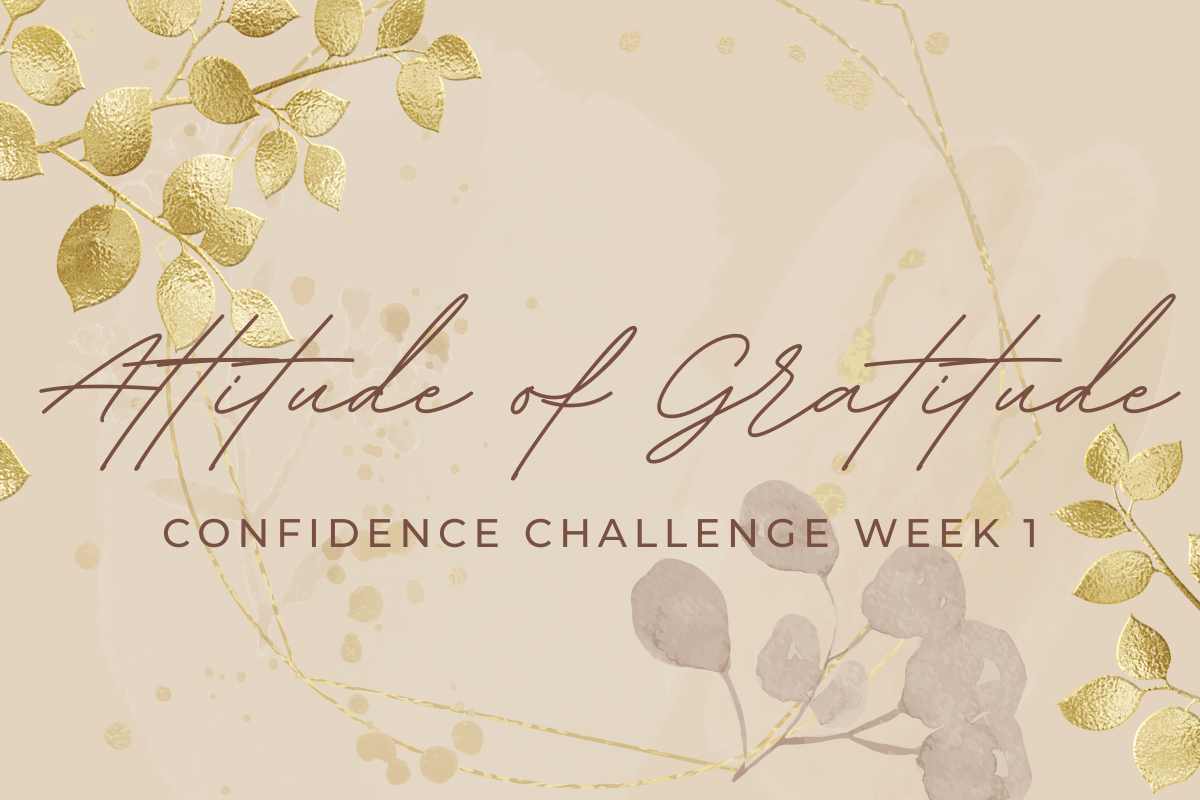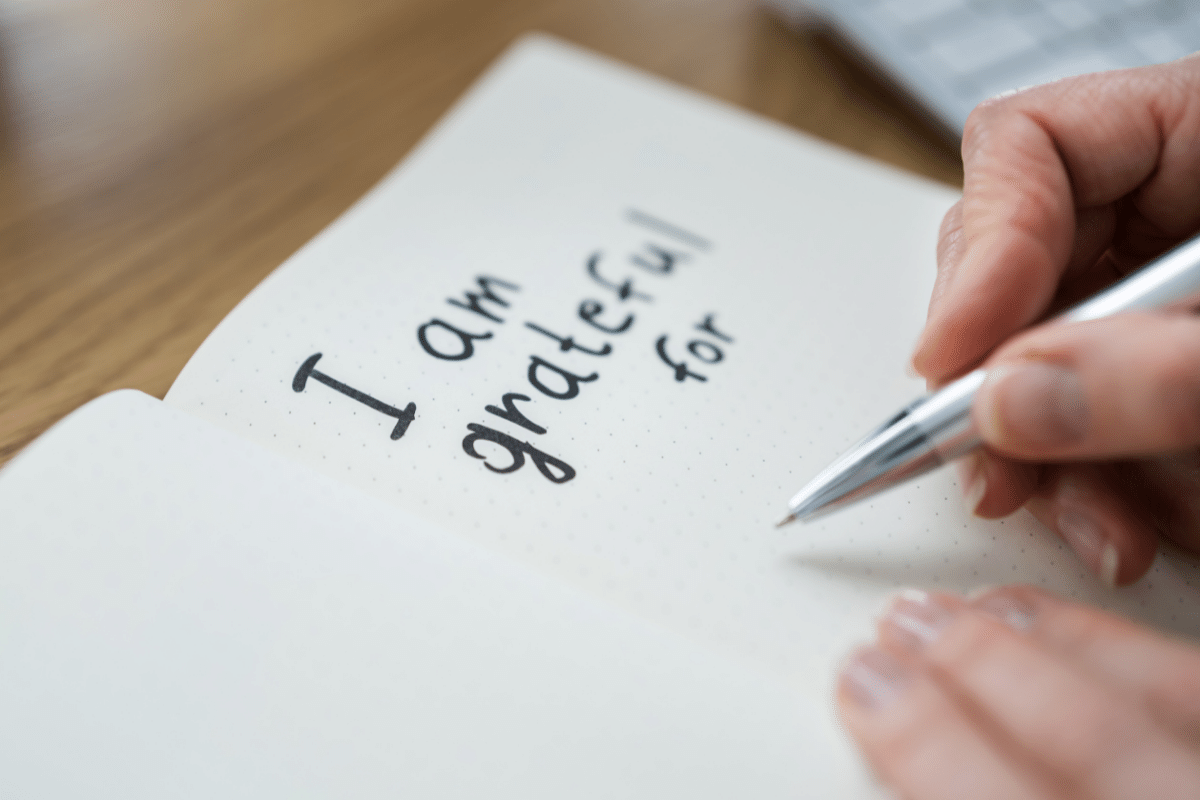Attitude of Gratitude

There are things that we all take for granted — almost like given truths in our lives. Whether it's the roof over our heads, the food on our plates or simply the presence of our breath. We forget that there is nothing in this world that's guaranteed for us.
Gratitude can change your life as it makes you deeply appreciate what you already have rather than focus on what you don’t.
Often, when we think about gratitude we are drawn to remember all the positive life situations we have or are experiencing, things and people that give us a cause for thanks. Much of this blog is inspired by an article by a Mindfulness, Yoga and Stress Management Consultant Bev Alderson which we are grateful to have found online.
In fact, much of the research on gratitude asks us to make focussing on the good the core of this practice.
However, gratitude isn't necessarily only about the good and the pleasant in our lives. This incredibly powerful practice invites us to be grateful for all that is, both the good and the contrasting.
There are likely to have been times in our lives when something that seemed bad turned out to be a blessing.
In these instances, we may be able to choose to see the blessing in the experience, if only by looking back and seeing that it helped us to learn and grow.
In a book “The School of Greatness” by Lewis Howes, he talks about creating a grateful mindset which he refers to as an ‘Attitude of Gratitude’.
He goes on to say that “Life is better if you develop an attitude of gratitude”.
There are many scientifically backed reasons why gratitude is so powerful and can literally change your life. Here are 5 we consider worth sharing:
1. Grateful people are happier & more confident

An article in the Huffington Post, “The Neuroscience of Why Gratitude Makes Us Happier” quotes – “If you’ve forgotten the language of gratitude then you’ll never be on speaking terms with happiness”.
Included in the article is a ten-week study, conducted by Robert A. Emmons, Ph.D., at the University of California at Davis, along with his colleague Mike McCullough, at the University of Miami, which links practicing gratitude to happiness levels.
All participants in the study were asked to keep a short journal and were randomly assigned to one of three groups:
- Group one was asked to journal five things they were grateful for that had occurred in the past week.
- Group two, five daily hassles that displeased them from the same period.
- A neutral group was asked to list five things that affected them – they were not asked to focus on these being either positive or negative.
After the study, participants in group one reported feeling better about their lives as a whole and were recorded as being 25% happier than group two, which brings us to the reason behind our first mini challenge in the 60 Day Confidence Challenge! More on that in our Facebook group!
2. Grateful people sleep better
Researchers at the University of Manchester conducted a study on how gratitude influences sleep.
What they found was that gratitude resulted in more positive and less negative thoughts prior to bedtime. This, in turn, had a positive impact on sleep quality and duration.
You surely have found yourself not being able to fall asleep as the mind keeps mulling over something that didn't go as planned that day or perhaps worrying about what you may have to face the next day.
Focusing on what you're grateful for before bedtime programs your subconscious mind into being content with what you have and who you are right now, resulting in better sleep and more happy thoughts.
3. Grateful people have better health and well-being
The Greater Good Magazine published an article “A “Thnx” a day keeps the Doctor Away” in which they found that participants who kept an online gratitude journal for two weeks had a happier disposition and reported more positive (e.g. happy, inspired, loving) and fewer negative (e.g. sad, bored, discouraged) emotions.
They also reported better physical health including fewer headaches, less stomach pain, clearer skin, and reduced congestion.
These results are consistent with the study conducted by Emmons and McCullough, listed above, who also saw group one participants report fewer overall health complaints than those in group two (such as headaches, shortness of breath, sore muscles and nausea).
4. Grateful people have better relationships

An article inPsychology Today “How Gratitude Influences Loving Behaviour” references the research that looked at the effects of gratitude on loving relationship maintenance behaviours, specifically how it influences behaviours towards a spouse over time.
So, in simplistic terms, when you express gratitude to a partner you create the potential for a gratitude loop to develop, where both parties feel grateful and behave in a loving way towards each other.
A study by Nathanial M Lambert and Frank D Fincham of couples found that individuals who took time to express gratitude for their partner, not only felt more positive towards them, but also felt more comfortable expressing concerns about their relationship.
In contrast, Dr. John Gottman proclaimed that for every one negative interaction (i.e. complaint, put down, angry exchange, frown) there needs to be five positive ones (i.e. smiles, laughter, compliments and you got it – expressions of appreciation and gratitude) for the relationship (marriage) to last.
5. Grateful people are more resilient
Resilience is our ability to effectively deal with the ebbs and flows of life, and to recover swiftly from challenging or stressful events.
When faced with a stressful situation our body initiates its sympathetic nervous system, often called the fight and flight response, which is part of the autonomic nervous system.
Whilst the sympathetic nervous system has its uses, heightened or prolonged stress can come with a whole host of negative impacts to physical and mental wellbeing.
Studies have shown that gratitude is one practice we can utilize to help dispel stress hormones and bring the body back to a more advantageous state, where its systems function more optimally.
One such study on gratitude and appreciation, included in a Positive Psychology article, “The Neuroscience of Gratitude and How it Affects Anxiety and Grief” found that participants who felt grateful showed a marked reduction in one of the stress hormones, cortisol, and had better cardiac functioning.
They were also shown to be more resilient to emotional setbacks and negative experiences.
The article goes on to say that by reducing stress hormones and managing the autonomic nervous system functions, gratitude can also have a positive influence in reducing symptoms of depression and anxiety.
Challenging and stressful situations are inevitable, and some may require the involvement and support of a medical professional. However, it seems that grateful people are, at times, able to maintain perspective and bounce back sooner.
All in all, it seems like we all could benefit from a little daily gratitude practice, in the majority of our life's most significant pillars.
We are happy to welcome you to our 60 Day Confident Challenge for many more insights on how to elevate your life, feel more confident & develop new lasting friendships with like-minded #ConfidentSisters!
Grateful for our Rumi family and all the ladies that have already joined our shared life-changing Confidence journey,
























































